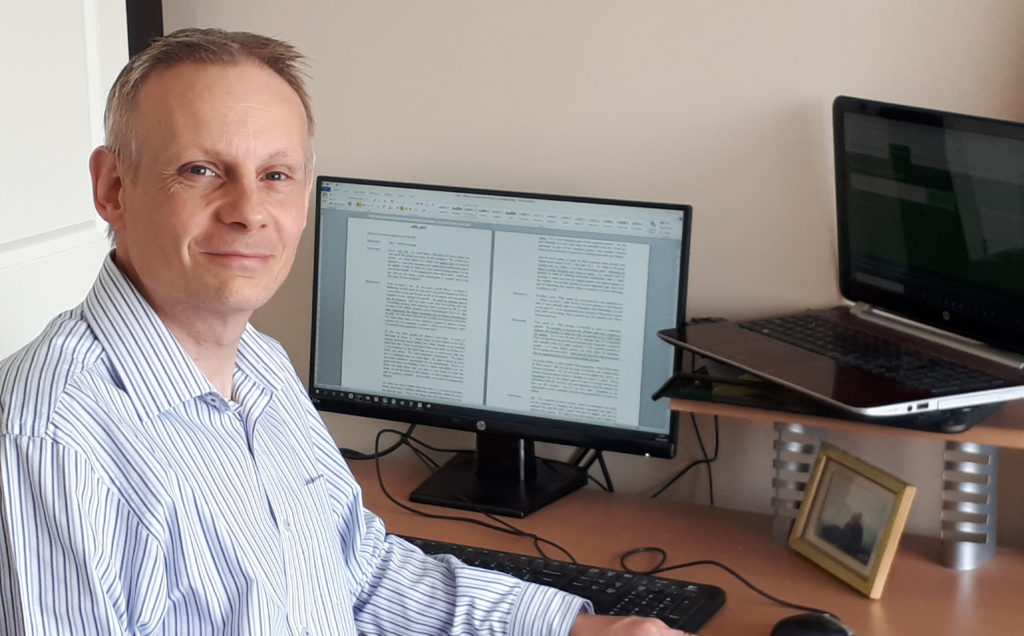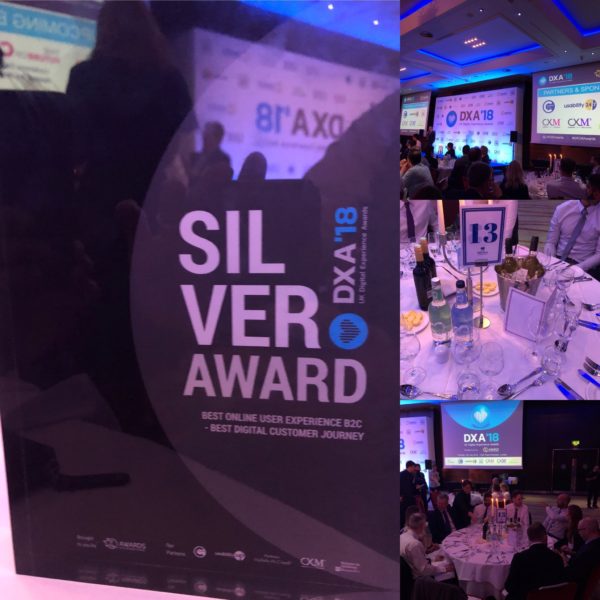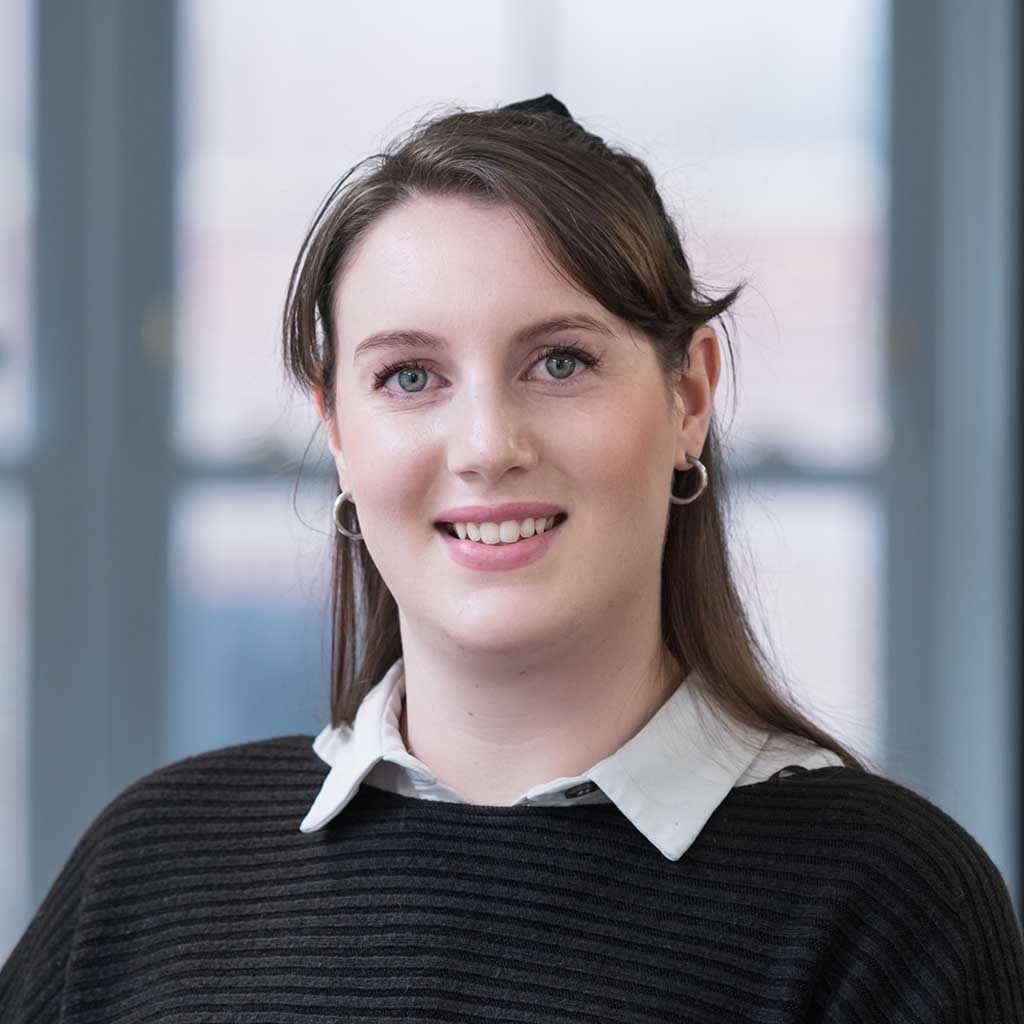The work we do has to make an impact to those we build a relationship with. Let’s share how the process has worked for others.
McCarthy & Stone are the UK’s leading retirement housebuilder, who build retirement communities that enrich lives for their homeowners. Ali Carmichael talked to Geoff Bates, Head of Marketing at McCarthy & Stone about a three-year user experience (UX) led conversion rate optimisation project that recently concluded.

How do we make sure that the customer experience is up to scratch in the digital world?
Our relationship began in 2016, at a time when the business had recently floated on the stock market and was putting together its new strategy for growth. When I started to think about that lifestyle ethos, it is so much more than bricks and mortar, which we do in the physical space. It’s about building retirement communities, and I wanted to look at how we could replicate that in the digital space.
It all comes together in my ability to see that overarching remit. McCarthy & Stone’s recent flotation and desire to grow, its purpose and its promise in terms of building retirement communities, and us wanting to make sure that the digital experience was living up to its important part in the journey.
There is an internal business aspect as well, coupled to the desire for growth, which is a recognition that in the digital space we grow by better serving our customers with the user experience and the content we have on the website.
What drove the need for a UX and Conversion Rate Optimisation (CRO) partner, and working with Experience UX?
Looking at our existing infrastructure earlier in 2016, the website that we had at the time was five years’ old and running on a platform that was out of support. Our external support for the website was split between a content agency, a digital marketing agency, and the infrastructure was supported by IT through another third party.
We also had to bootstrap in some code to make it responsive, so the codebase was not great in terms of how that was set up. It was fragmented in terms of the technology and the underpinning support that we had, and we wanted to consolidate and bring our digital infrastructure up to date.
We looked at various agency support models and although we could consolidate the technology, we could consolidate the digital marketing, and we could consolidate the coding base, what we really felt was lacking was an ethos and a process that had the customer at the centre of it.
We wanted to start the process with the customer and build everything else on that as its foundation.
Through the tender process Experience UX demonstrated that they focus on that unique element and have built a thorough process to keep the customer at the heart of everything. It was clear their process would provide us what we needed, and it would not just be tacked on, it would not just be part of a wider offering, it would be the foundation. For us, this was a unique opportunity.
Our initial work with Experience UX highlighted the quick wins, to help me prove to the business that even making small but accurate tweaks to improve the user journey, you can gain early benefits.
What concerns did you have going into a three-year project?
The concern was the same as the excitement – managing and delivering a multi-agency approach and keeping the wider business engaged. It was therefore important to get all the agencies in a room, early on with the project team, to lay out how the project was going to work and the role that everyone would play. More importantly for me though, was to get the whole team talking, to bring us all together.
It was a genuine multiagency approach. Across all the sessions we had, everyone was offered the chance to contribute, including our call centre, all of the nine regions (of the UK), and our other partner agencies.. Experience UX’s ability to involve the whole team in the process maintained a lot of goodwill and buy in, and the ability to sustain the excitement and investment in the project over three years, was a really important part of our process.
There is a significant amount of experience in the business across the teams, whether sales directors, digital teams, or construction teams, in terms of how they build things or what benefits they hear that customers are looking for. We went everywhere we could to capture that knowledge then, combined with the user insight, we created informed user stories.

How do feel having concluded the project, and how has the business benefited?
The whole process has been enlightening. It takes a very different, very customer centric (and it is not just saying it) approach that will deliver benefits. It finds those insights, those actionable insights. It digs them out. It finds them using the customer. It brings the business together around them and then enables that delivery.
The two key objectives for us were 1. a customer focus: In terms of what the analytics are telling us about how people are using our website, are they finding it easier, are they accessing quality content, are they finding what they want?
And then 2. the commercial impact: Are we ultimately getting more enquiries from the website? Are those enquiries converting into more visits? And then do those visits lead to more sales? Is our marketing sales funnel improving? And are we genuinely better serving our customers and their research processes?
Absolutely, we very clearly achieved both the customer and commercial objectives.
Quite soon after launch, we delivered over 600 more sales leads and then 60 more visits to developments, resulting in more legal completions. When you think about selling a £300,000 property, , in a very short period we created eight more legal completions, which is a significant difference.
Other numbers like bounce rates, off-plan sales, customer satisfaction, have all increased favourably and an additional bonus was the improvement for our telephone sales agency, who receive incoming enquiries. The website is a critical part of their journey with a potential customer, not only were they able to better help customers, they reported that customers were suddenly more informed prior to phoning. That was because of the improved website.
Looking back, what might you have changed and what have you personally learnt?
From a project perspective, just continuously pressing – my job was to press internally, to make sure that we got the resources we needed at the right time.
I would want to try and accelerate it. Through no fault of any of our agencies my navigation of internal prioritisation, presenting CBAs, getting approval from finance directors, making sure the project was in the technology stack, etc, I could have done some things differently to make sure I pushed it through at key points, which is a great learning for me next time.
Also, although I did a lot to keep the board involved, I should have put you in front of the Board more regularly. A lot of outputs came out of your work that I think would have helped with keeping it front of mind, keeping the excitement going. So I wish I’d used your expertise a little bit more to maintain that.
Personally, there was also a lot of growth in terms of just being able to change the business mind-set towards digital, and that perseverance and the belief that you need to role model and project in order to do that.
I made it very clear to my team, in terms of what I needed to do internally, to sell the benefits and to gain that buy in. I was really impressed with the way the team rallied round and understood the support they gave me to achieve that. Being clear with the team upfront, how I wanted things to work, gaining and maintaining that board level approval, and taking them on that journey – I thoroughly enjoyed that process.
I’ve come across, in my own personal development, that servant leadership principle where, as a leader, I’m there to serve my team and facilitate them doing their jobs better and to the best of their ability and to move them forward. And by doing so the collective improves.
- 20% increase in form conversion rates
- Exceeded Off-plan sales target by 30%
What value did Experience UX bring to the project?
There are three things that immediately spring to mind:
- You were really the customer, so you embodied and delivered for us the actual whys and wherefores and insights into what customers were looking for. Having Experience UX come in and be that independent voice and bring us back to that customer centric focus, was the big thing that you delivered and what we needed.
- You were very agile in supporting the big business adaptations that would appear. Mid-project, “Oh by the way, now we’ve got rentals, so now we need to consider rental as a new way of living with us”. Demonstrating an agile and flexible approach was refreshing.
- Your process and the investment and enthusiasm for the project. A lot of rubber hit the road when we asked you to engage with the broader business, you looked at us and said, “Actually OK, you’re nationwide, you’ve got nine regional offices and a head office, you’ve got a call centre…”. Experience UX tackled all of that in order to make that engagement. Your ability to take on a business, the size and complexity of McCarthy & Stone, was really impressive.
Thank you very much Geoff.

